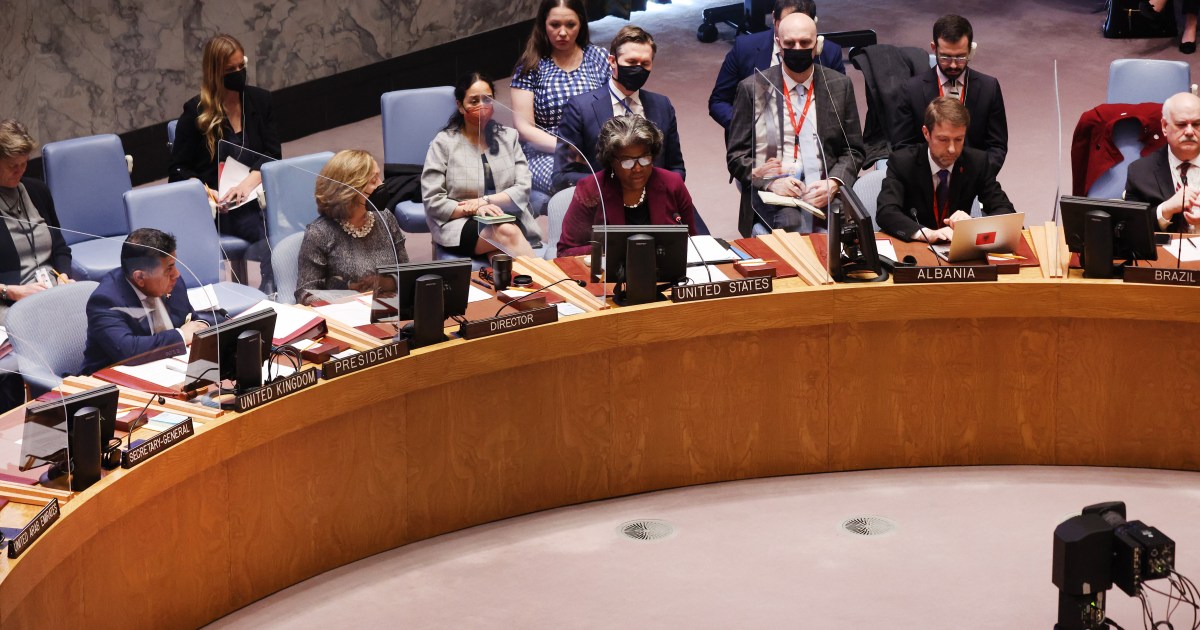UN to debate Security Council permanent member veto power
A proposal by Liechtenstein would require the US, France, UK, Russia and China to justify vetoing a UNSC action.
The United Nations is set to debate a provision that would require the five permanent members of the body’s Security Council – the United States, United Kingdom, France, China and Russia – to justify invoking their veto powers.
The reform to the Security Council has been floated for years at the UN but has regained new traction following Russia’s invasion of Ukraine. Currently, the five permanent members can veto any resolutions put forth by the Security Council. Meanwhile, the rotating 10 other members have no such power.
Moscow has used its veto power to limit actions by the UNSC since invading Ukraine on February 24, immediately blocking a resolution that called for Moscow to remove troops from Ukraine.
“We are particularly concerned by Russia’s shameful pattern of abusing its veto privilege over the past two decades,” said the US ambassador to the UN, Linda Thomas-Greenfield, in a statement.
The adoption of the Liechtenstein resolution “will be a significant step toward the accountability, transparency and responsibility of all” the permanent members of the Security Council, she added.
The latest proposal, put forth by Liechtenstein, is co-sponsored by 50 countries including the US. No other permanent members are currently co-sponsors, although France has indicated it will support the move, according to the AFP news agency.
The text of the proposal, obtained by the AFP, calls for the 193 members of the General Assembly to gather “within 10 working days of the casting of a veto by one or more permanent members of the Security Council, to hold a debate on the situation as to which the veto was cast”.
Since the first veto ever used – by the Soviet Union in 1946 – Moscow has deployed it 143 times, far ahead of the United States (86 times), Britain (30 times) or China and France (18 times each).
In early April, the UN general assembly suspended Russia from the Geneva-based UN Human Rights Council. At the time, 93 members voted in support of the suspension, 24 voted against and 58 abstained.
France, which last used the veto in 1989, proposed in 2013 that the permanent members collectively and voluntarily limit their use of the veto in the event of a mass atrocity.
Co-sponsored by Mexico and supported by 100 countries, the proposal has so far stalled.




